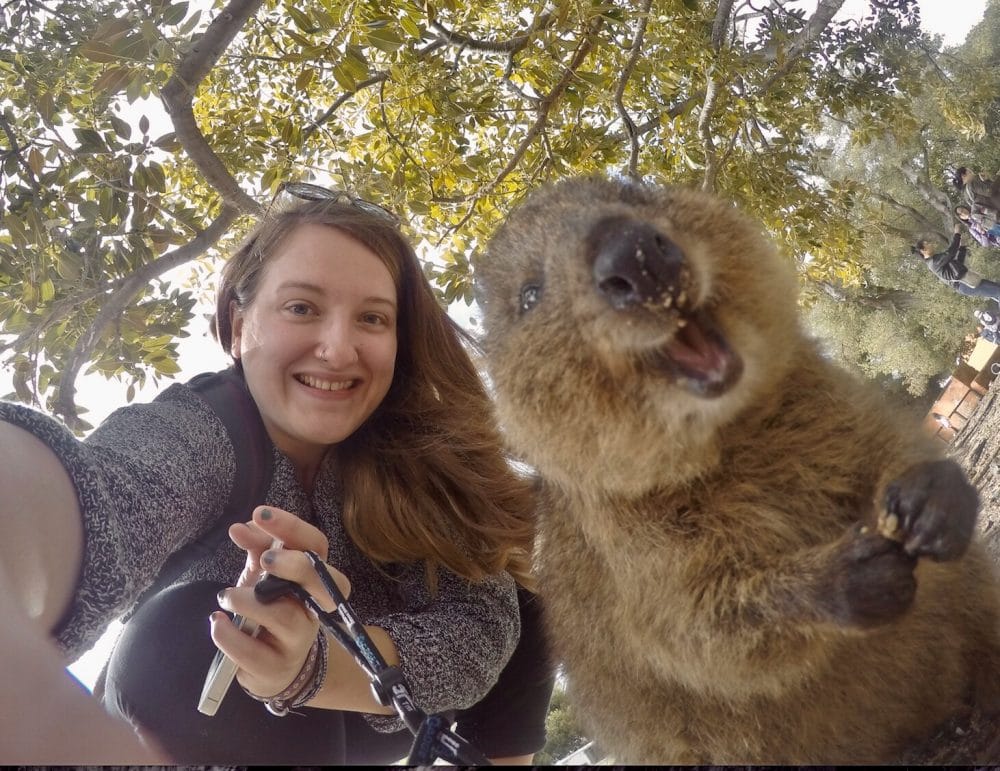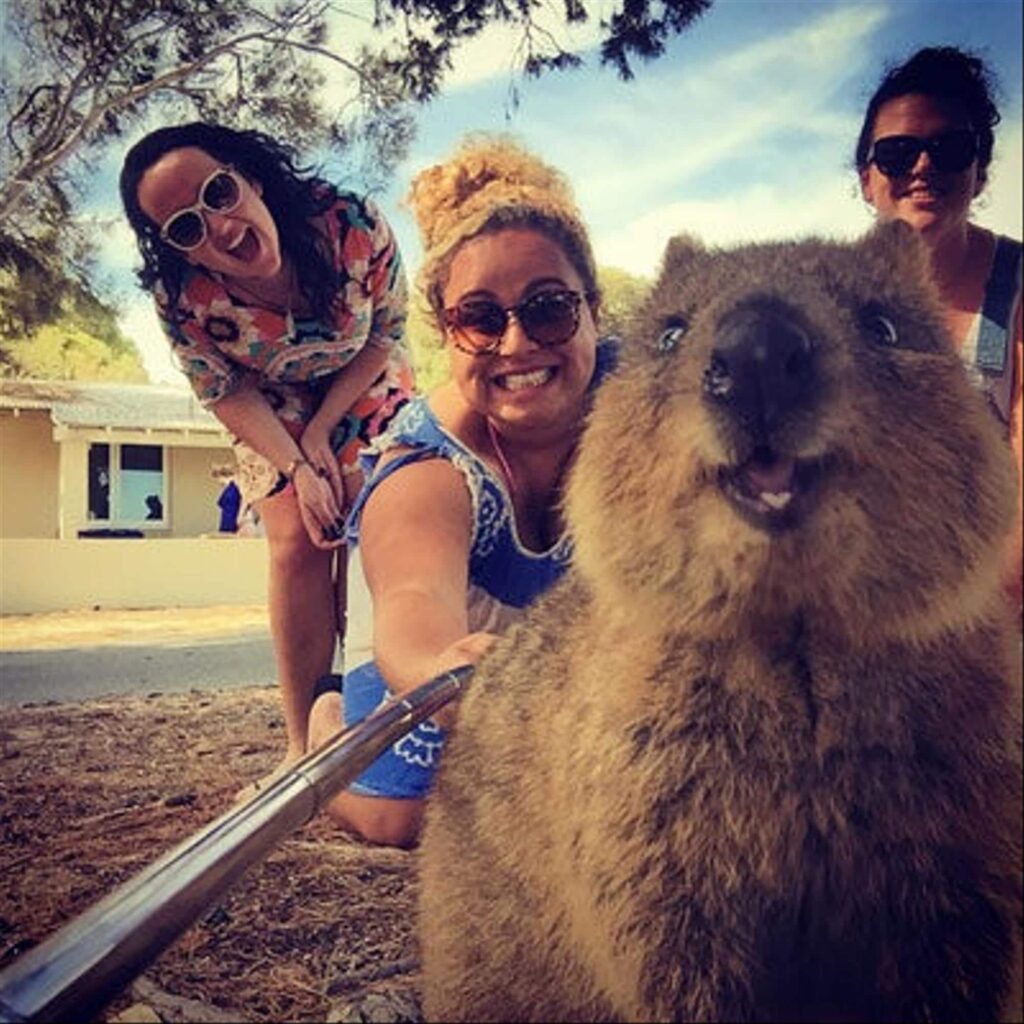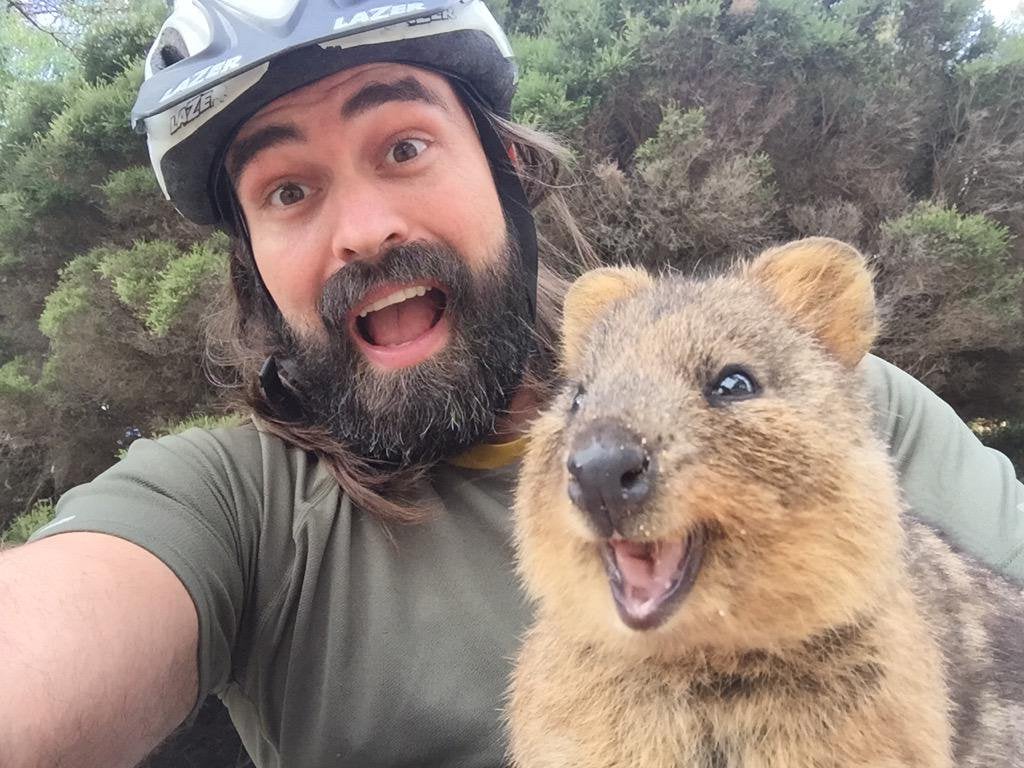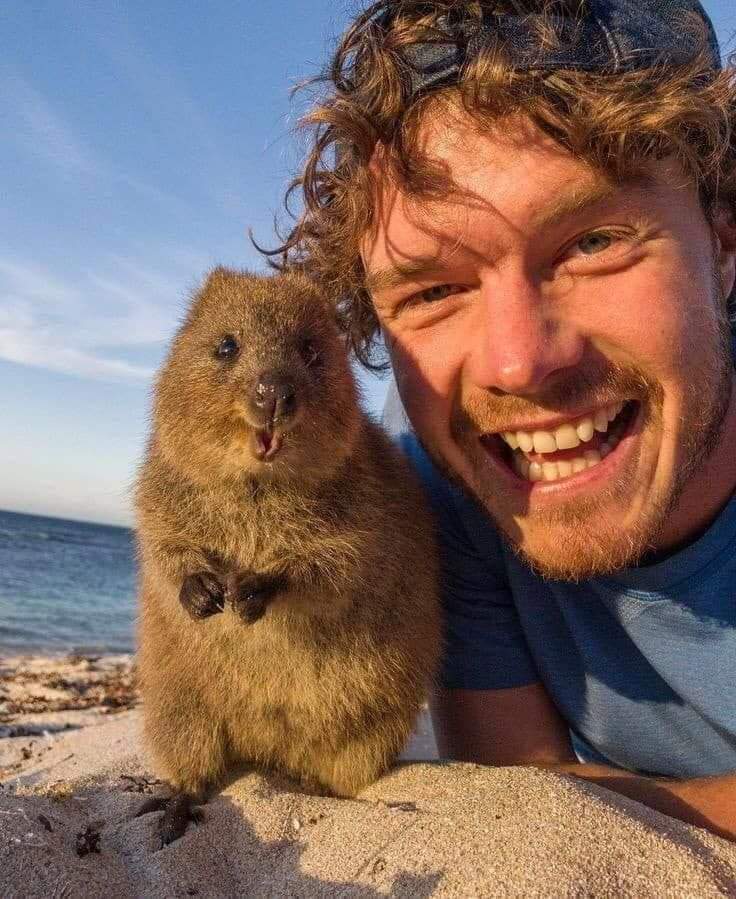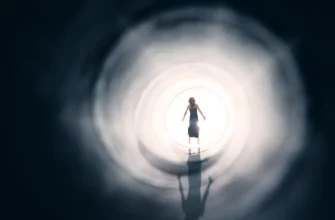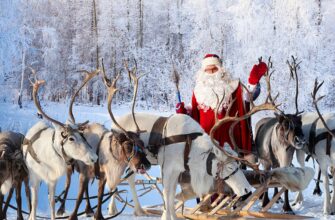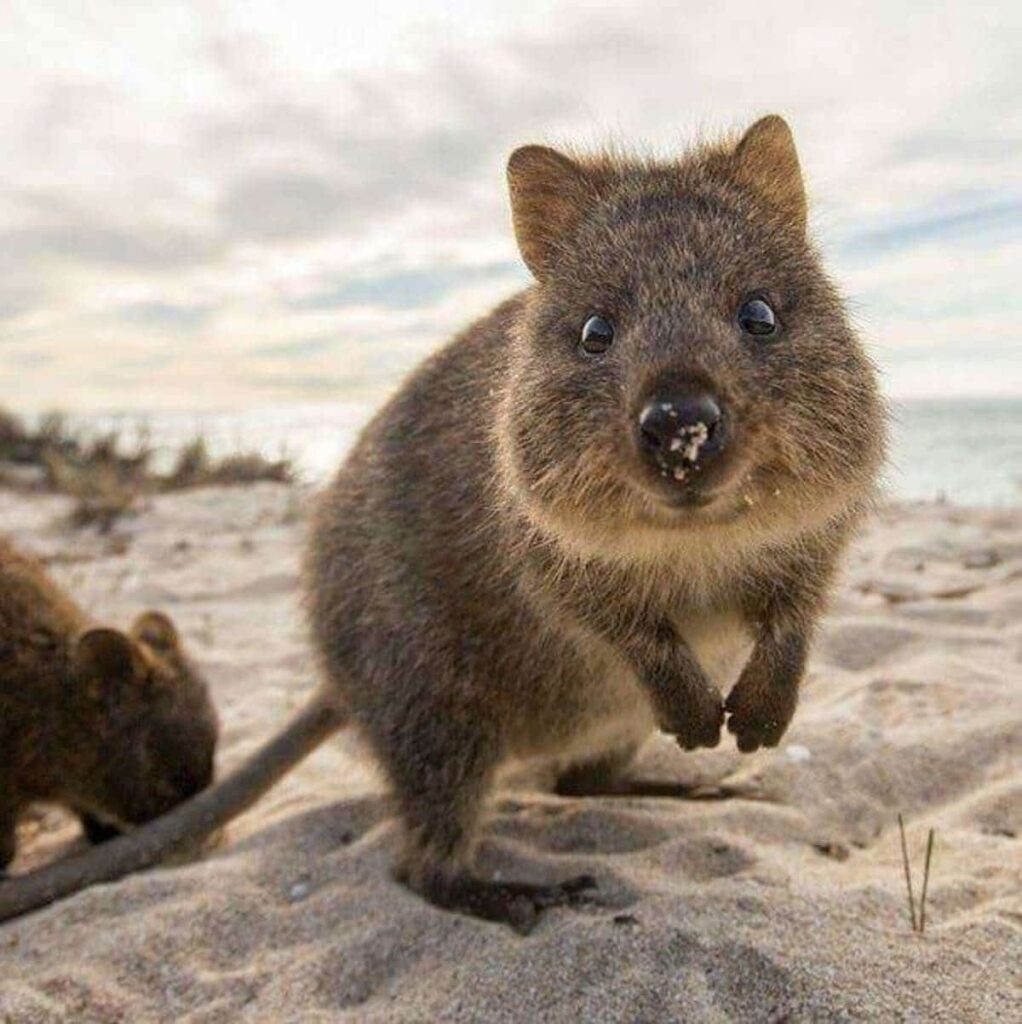
Vulnerable to Extinction
Quokkas are currently thought to be in danger of going extinct due to habitat devastation brought on by what we refer to as “progress”.
Their population is between 8,000 and 12,000 people. Unfortunately, the fact that they are all in the same place makes them much more vulnerable. The area’s only natural predators are snakes, which is a wonderful thing. Their reduction has also been attributed to bushfires.
Being the happiest animal on earth has drawbacks as well. They don’t mind being in close proximity to predators like dingoes, foxes, dogs, and huge birds because they are highly amiable and trustworthy. Quokkas, however, are always their final meal because these animals are ferocious predators.
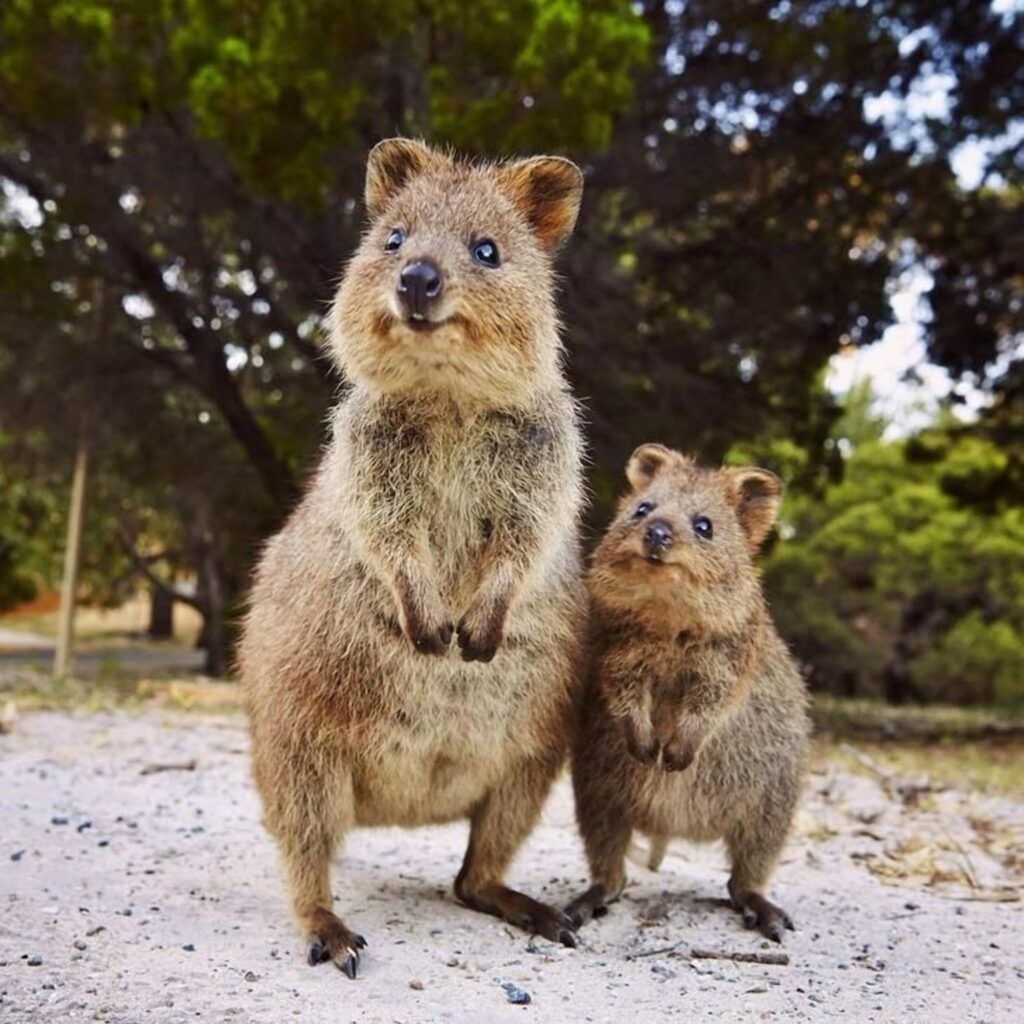
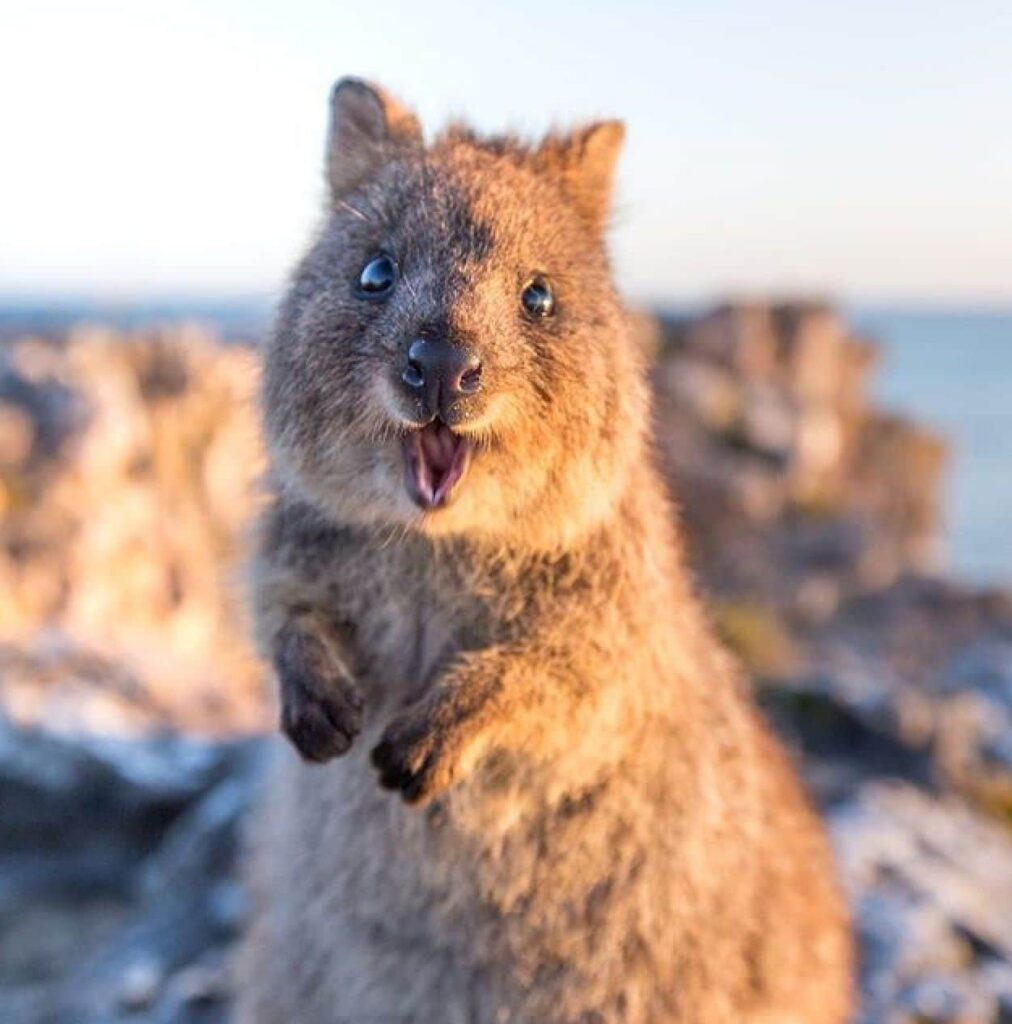
Selfie Stardom
Despite being considered “vulnerable,” this adorable creature is not afraid of people. People have rapidly warmed up to quokkas since they are social and personable tiny marsupials. There has been a significant increase in visitors to Rottnest Island who wish to interact with the cute animals. Taking “quokka selfies” is a favorite past time of visitors to Australia.
Quokkas experienced a surge in popularity in 2013, particularly after being featured in a Huffington Post piece. Selfies were taken with them, and these quickly became popular online. These creatures don’t fear people, therefore it appears like they are also grinning for the camera. They are known as the happiest animal on earth thanks to the selfie craze. Many people opt to post their images on social media.
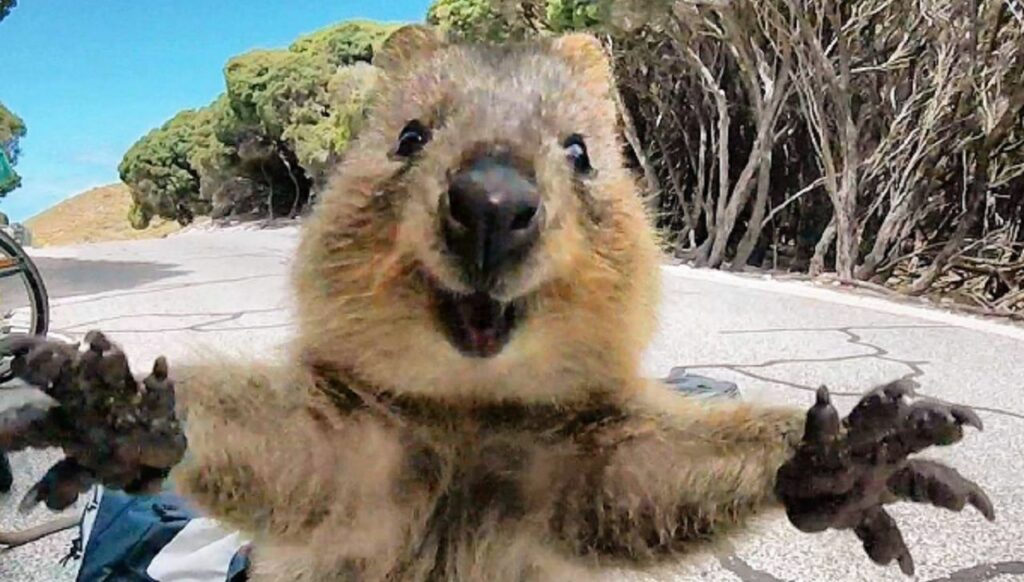
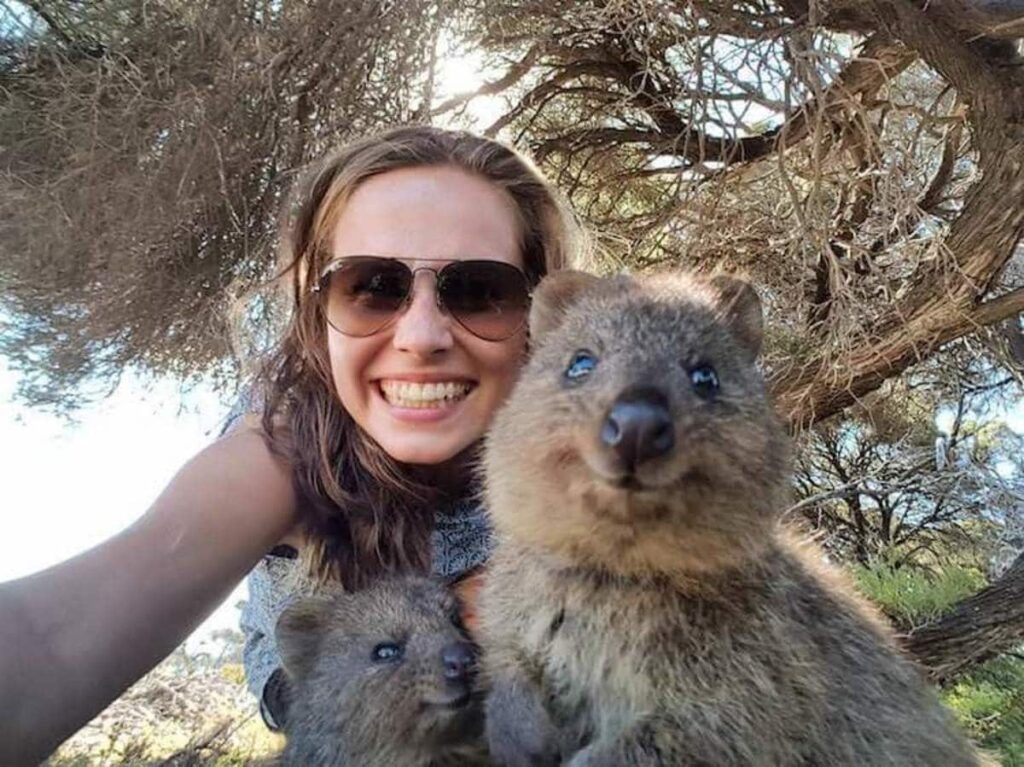
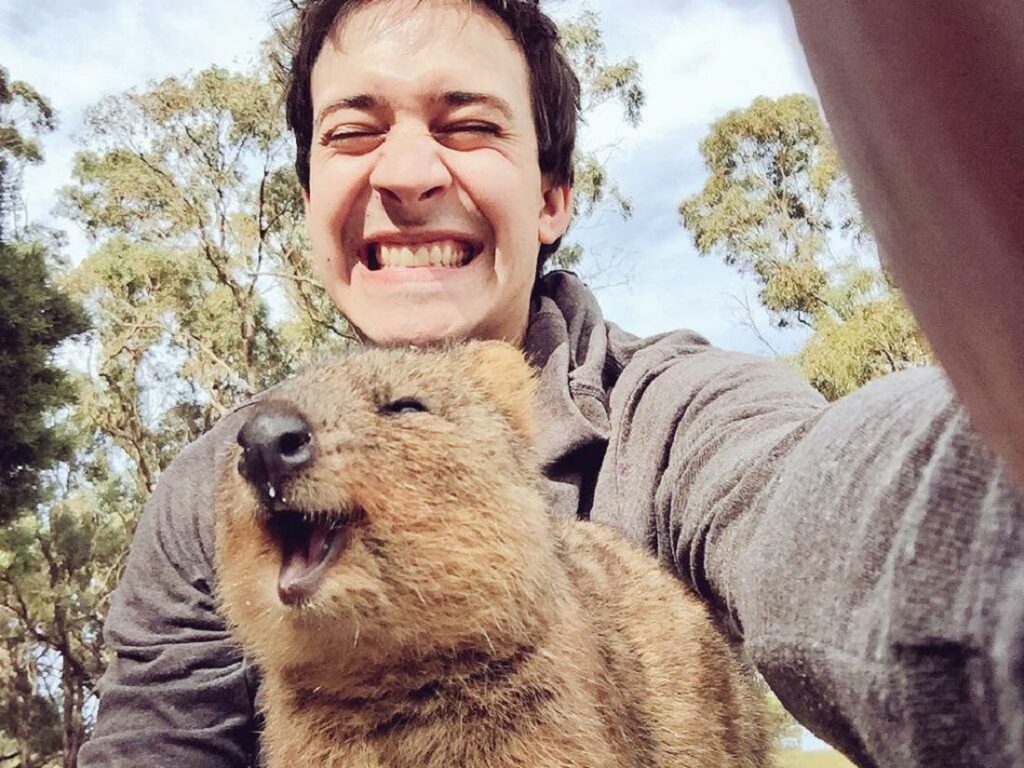
In fact, because it would endanger the quokka population, conservation experts have raised concern about allowing too many people to visit the island. The popularity of this adorable creature and the Australian government’s efforts to conserve it were both covered in a report by National Geographic Wild.
They won’t flee if someone approaches them, so feel free. Please be warned, though, that you are not permitted to handle them in any way if you spot one. Additionally, you should refrain from giving them human food because they can become ill. For infractions, there is a $300 minimum fine, a $50,000 maximum fine, and even a five-year prison sentence that might be imposed.
